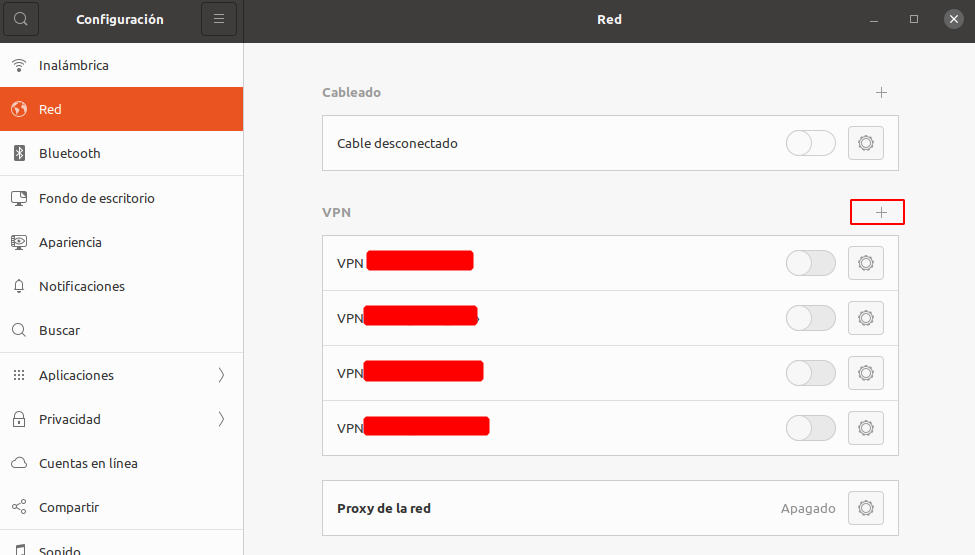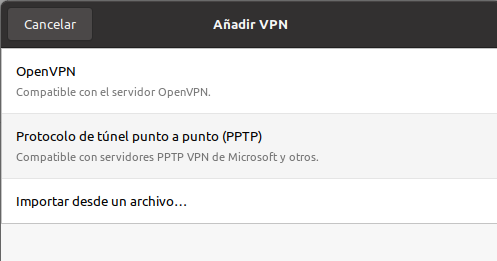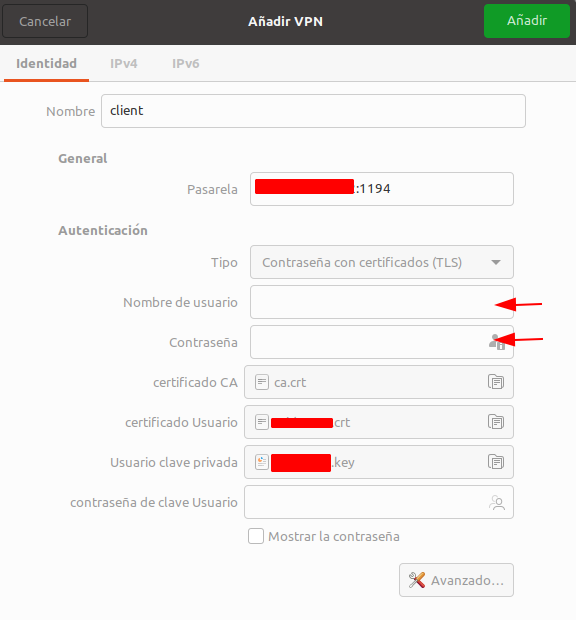OpenVPN for Linux Users#
In order to provide secure access to the TeideHPC infrastructure, all communications will be through a virtual private network (VPN).
Users will receive an email with the configuration files and access credentials encrypted with their GPG public password.
Its content is as follows:
- Four files containing the client's certificates.
- One client.ovpn file containing the connection data
- One README.txt file with the access credentials.
Please note that VPN credentials are personal and non-transferable and that only one simultaneous connection per VPN is allowed.
Most current Linux distributions have an openVPN client installed by default. This can be used through a terminal or configured and used through a graphical interface.
How to first step [decrypt] (how_to_gpg_linux.md) and then unzip the attached gpg file and place it in a folder inside your /home.
Connection via terminal#
To connect to the VPN you just have to go to the route ~suhome/.openvpn/su_configuración/ and run:
Connection via graphical interface#
We show below a small guide for the Ubuntu 20.04 distribution.
Open the network manager by accessing the desktop bar or by typing Settings in the application menu.
Open the Net settings and add a new VPN connection:
Import settings from file
Enter our username and password
Save the configuration and we can now try to connect to the TeideHPC VPN.




